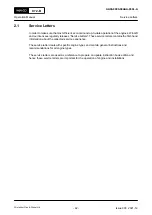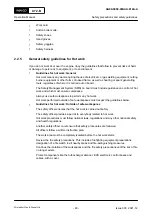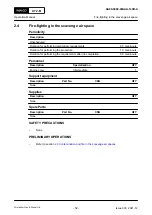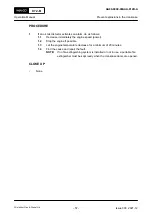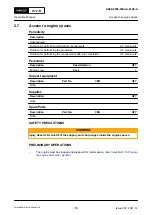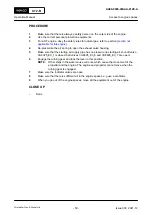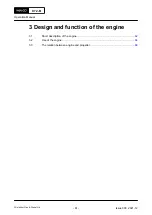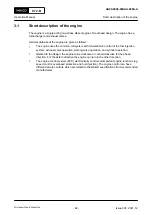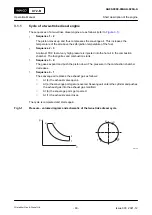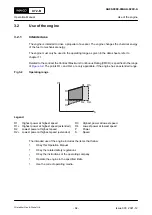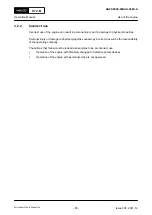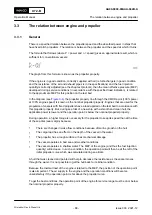
PROCEDURE
1
If you think there is no fire, do the steps as follows:
1.1
Decrease the engine power.
1.2
Cut out the injection of the related cylinder.
1.3
Increase the feed rate of the lubricating oil in the related cylinder to the maximum,
although there is high temperature in the related cylinder.
WARNING
Injury Hazard. Where CO
2
is used to extinguish a fire in the engine, there is a risk of
suffocation. Make sure that all related spaces have good airflow to remove all CO
2
gas
before you go into the engine.
CAUTION
Damage Hazard. Steam can cause corrosion. If steam is used to extinguish a fire you must
do procedures to prevent corrosion.
2
If you think there is a fire, do the steps as follows:
2.1
Shut down the engine.
2.2
Fight the fire with the installed fire extinguishing system.
3
After approximately 5 minutes to 15 minutes, do the checks as follows:
3.1
Do a check of the exhaust gas temperature.
3.2
Do a careful check of the temperatures of the doors to the piston underside space.
4
Find the causes of the problems as follows:
4.1
Do a check of the cylinder liner running surface, piston and piston rings.
4.2
Do a check of the flaps in the scavenge air receiver (replace if necessary).
4.3
Do a check for possible leaks.
4.4
Do a check of the piston rod gland as much as possible.
4.5
Do a check of the injection nozzles.
4.6
If necessary, clean or repair the defective items.
5
Start the engine as follows:
5.1
If applicable, cut in the injection.
5.2
Start the engine.
5.3
Start the injection and slowly increase the load.
5.4
Set the cylinder oil feed rate to the applicable value.
NOTE:
Do not operate the engine for long periods with a high cylinder oil setting.
CLOSE UP
•
None
X72-B
AA00-0000-00AAA-140B-A
Operation Manual
Fire-fighting in the scavenge air space
Winterthur Gas & Diesel Ltd.
- 53 -
Issue 003 2021-12




